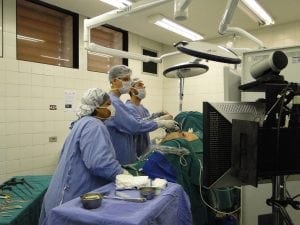The FDA has recently approved combination treatments for those diagnosed with unresectable advanced or metastatic esophageal squamous cell carcinoma. These combination treatments are nivolumab and fluoropyrimidine along with platinum-containing chemotherapy and nivolumab and ipilimumab. These approvals were based on a Phase 3 clinical trial.
Combinations with nivolumab have already received approval as a treatment for advanced gastric cancer, esophageal adenocarcinoma, and gastroesophageal junction cancer.
Phase 3 Trial
This Phase 3 clinical trial was called CheckMate -648, and it examined both nivolumab treatment combinations. Specifically, it examined these combination treatments compared to chemotherapy on its own.
The overall survival (OS) and progression-free survival (PFS) were primary endpoints for those who had PD-L1 expression of at least 1%. Overall survival and progression-free survival among the rest of the patient population were secondary endpoints.
This study found that the nivolumab-chemotherapy combination led to increased OS compared to chemotherapy on its own for both those with PD-L1 expression and those without. The same was found for the nivolumab-ipilimumab combination. Progression-free survival was only improved for those given nivolumab and chemotherapy who had PD-L1 expression.
Unfortunately, there were serious adverse events in 62% of the nivolumab and chemotherapy group, as well as 69% of those in the nivolumab-ipilimumab group. Adverse events ranged from pneumonia to pyrexia and dysphagia.
You can read more about this new approval and the trial that led to it here.








